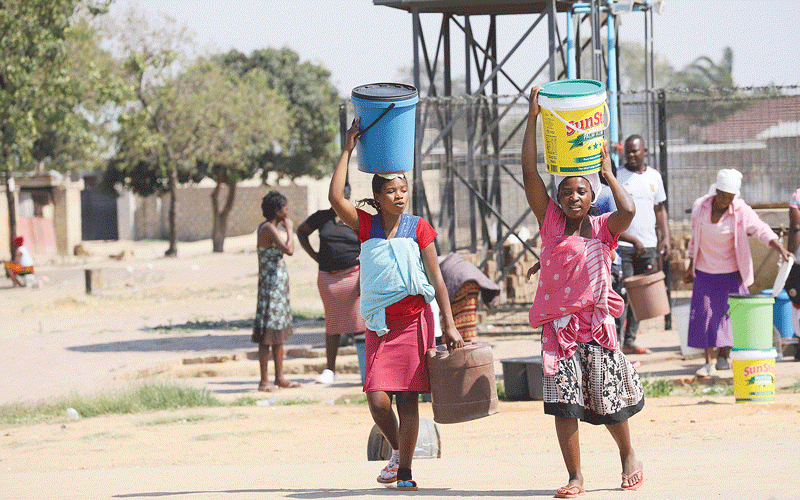
HARARE residents have given the local authority a five-day ultimatum to address water shortages in several high-density suburbs amid a cholera outbreak that has claimed over 100 lives and infected thousands across the country.
According to the Health ministry’s latest situational report, Manicaland has the highest confirmed cases at 616, followed by Matabeleland South with 133 cases and Harare (125).
In Harare, where cholera is now endemic, residents go for days without potable water, creating a conducive environment for the spread of the water-borne disease.

Residents, through the Zimbabwe Lawyers for Human Rights (ZLHR) lawyers Tinashe Chinopfukutwa and Kelvin Kabaya, demanded the restoration of water supplies to stop the spread of the disease.
“Through the letter, Chinopfukutwa and Kabaya complained that residents living in these suburbs have been experiencing severe problems in accessing running and potable water from their taps and had been forced to resort to fetching water for consumption and daily use from shallow wells and do not know whether the water from the underground wells is safe for consumption or not,” read a statement issued by ZLHR.
The residents said they feared that lack of running water places them at risk of contracting cholera.
The human rights lawyers said the right to water is guaranteed in section 77 of the Constitution.
- Byo armed robber in court
- Woman jailed 12 years for indecent assault
- Magistrate jailed 3 years for abuse of office
- Zim’s poor batting hands India series
Keep Reading
The residents also asked the City of Harare to furnish them with the local authority’s water policy and a plan on how it intends to rectify the perennial water shortages in the city.

Failure to comply with their demand, the lawyers said, would leave them with no option but to institute legal proceedings to obtain appropriate relief in court.
The capital city was one of the hotspots during the deadly 2008 cholera outbreak that claimed more than 4 000 lives and affected about 100 000 others.
Speaking to NewsDay yesterday, council’s epidemiology and disease control officer, Michael Vere, said they are making progress in cholera awareness and prevention campaigns despite the ongoing water challenges being faced by residents.
“The issue of water is outside our mandate but I understand there are challenges in accessing chemicals for water treatment. As the city health department, we are making efforts to treat water at nearby boreholes in affected areas so that people can have access to clean and safe water,” Vere said.
“We are also intensifying health promotion activities, doing door-to-door campaigns. We are helping in supplying water bowsers daily to places like Southlands, Stoneridge and Hopley where we give daily supplies.”

Vere, however, said there is need for a long-term solutions to the water challenges.
“The city will continue having problems if we continue using water from Lake Chivero which is highly polluted and needs more chemicals to treat. It thereby makes Harare water expensive. I think there is a need for alternative sources of water for the city,” he said.
Cholera is an acute waterborne diarrheal disease that is preventable if people have access to safe water and sanitation and practice good hygiene, but can kill within hours if left untreated.
The current cholera outbreak started in Buhera district, Manicaland province.

The outbreak has now spread to Buhera, Chegutu, Chikomba, Chimanimani, Chipinge, Chitungwiza, Chiredzi, Harare, Gokwe North, Marondera, Mazowe, Shamva, Mutare, Murehwa, Mwenezi, Seke and Wedza.










